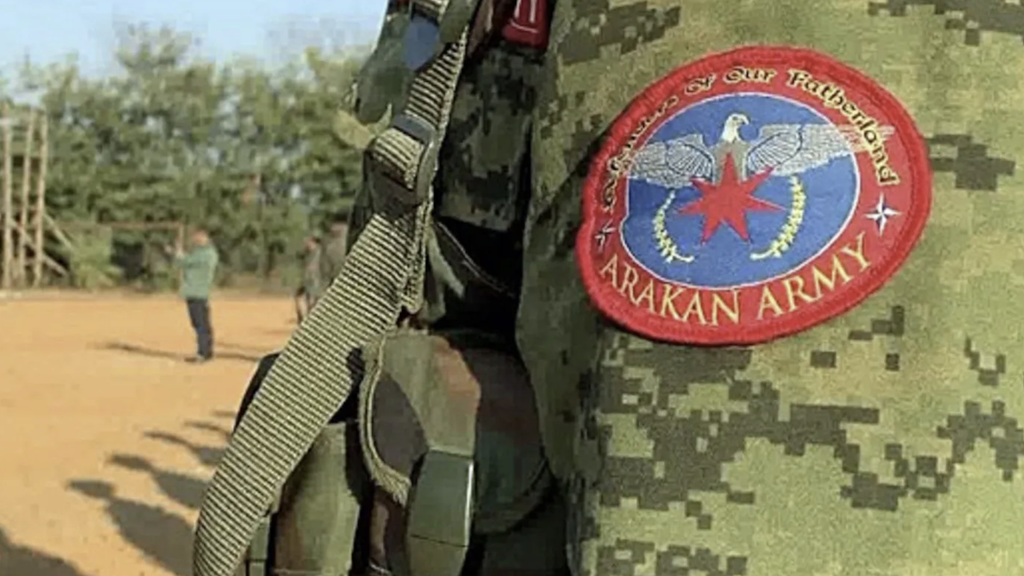Rohingya refugees harassed at Nayapara official camp
- 04/02/2011
- 0
By Kyaw Hla
Molana Mohamed Yousuf fled to Bangladesh from his home in Burma’s Arakan State 20 years ago because of the brutal treatment where he and other Rohingya people suffered at the hands of the military government. But, recent harassment by Bangladeshi authorities has left the seventy-seven year old wondering if he made the right choice.
“I came to Bangladesh because of religious persecution and other human rights abuses such as forced labor, restrictions on movement, marriage, and education, as well as land confiscation, arbitrary arrest and extortion, and because I was denied the right of citizenship. Bangladesh is the same Burma.”
Mr. Yousuf and other Rohingya refugees claim they are not safe at Nayapara official camp because of arbitrary arrest and torture by the camp security force, which is supervised by the UNHCR and the Bangladesh government.
“I was arrested by the camp security force because I demanded the release of my son,” Mr. Yousuf, who is a camp religious teacher, told kaladan Press.
“On November 30, 2010, the camp security force and members of the office staff went to my shed and arrested my son, 27 year old Molana Jaber, and accused him of illegally using electricity in a camp school. The next day, I went to the camp security office to see my son and demanded the release my son because he was sick. The security officer refused it. When I cried out more I was caught and tied with ropes tightly like an animal and beaten without any investigation.”
However, he and his son were released after family members complained about his treatment.
Mr. Yousuf said, a doctor at Nayapara clinic refused to admit him after his release, but only provided some medicine.
“I suffered with serious pain and fever after being released. I feel I did not get proper treatment from the refugee clinic. My family took me outside the camp for better treatment,” he said.
“My family and I do not feel safe in the Nayapara camp.”
A relative of Mohamed Nasir, 35, from Block D of the camp told Kaladan Press security officers dragged Mr. Nasir by his shirt to their shed on November 27, after finding him repairing his fishing nets.
A community leader said refugees often fish to supplement their family’s food supplies because the World Food Programme does not provide fish or other meats.
Mr. Nasir was held overnight, but was released after paying 1,500 taka to a camp police officer named Sub-Inspector Nepal.
Like Mr. Nasir, many official refugees are arrested arbitrarily and detained one or two nights by the camp security force and camp police, a refugee said.
Residents said police have demanded 1500 taka to 3,000 for their release. They will be kept and severally beaten by police if they do not pay.
Camp security forces also arrest people who visit to their relatives in the camp.
They said this type of harassment has been going on at Nayapara camp nearly one year.
“Police and camp security frequently enter the camp to arrest residents for the purpose of extorting money,” camp residents said.
“We face the same problems and persecutions from the Bangladeshi authorities in the refugee camps as we do from the Burmese military in Arakan State ”, said one refugee on condition of anonymity.
However, a UNHCR source said the agency has been trying to stop the harassment, but can’t because the Bangladesh government ignores their complaints.
A UNHCR report says Bangladesh is host to Rohingya refugees, an ethnic, linguistic and religious minority in Myanmar’s northern Rakhine (Arakan) State, which constitutes one of the most protracted refugee situations in the world. Some 28,700 refugees reside in the two camps of Kutupalong and Nayapara, in the south-eastern district of Cox’s Bazar. They represent the residual population of the 250,000 refugees, who arrived in 1991, most of whom were subsequently repatriated. In addition, the Government has estimated that another 200,000 unregistered persons of concern from Myanmar live in Bangladesh without any legal status, mostly in the villages outside the camps.
The report also says that though positive government policies have ensured some improvements in the situation of registered refugees over the past few years, their quality of life remains very poor. Moreover, a 3 per cent annual increase in poverty levels and high illiteracy and unemployment rates in the district, are contributing to a growth of hostility towards the refugees, affecting the unregistered population in particular. This has resulted in more than 28,000 unregistered persons of concern from Myanmar settling spontaneously outside Kutupalong camp, where they face high rates of malnutrition and poor sanitary conditions.
A school teacher from Nayapara refugee camp said, on condition of anonymity, that the camp security forces and police enter the camp and arrest innocent refugees from the roadside and near water supplies. They also extort money from shopkeepers, destroying their shop if they are not able to pay.
The teacher is calling on the UNHCR and the international community to immediately stop this harassment and to protect the refugees according to the Universal Declaration of Human Rights.
“We have been living at small sheds with six and seven family members at Nayapara refugee camp since 1991. I ask the international community how long should we be forced to live like animals? “







